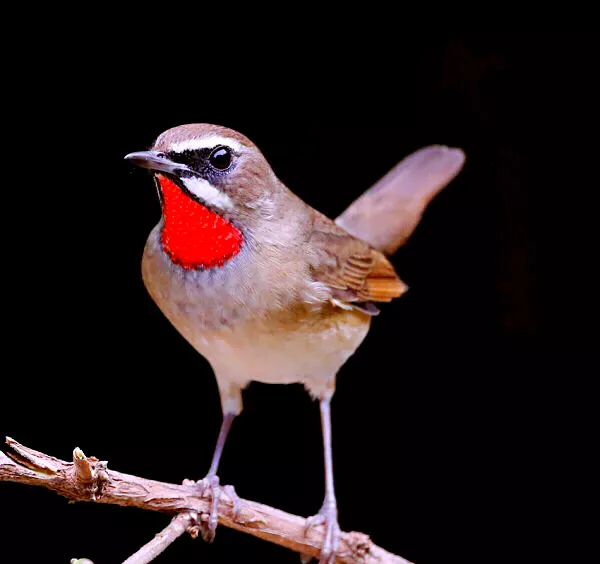Red indigo chin, aliases: red-throated songbird, red-spotted chin, red-necked child, etc. Typical terrestrial birds of the order Passeriformes, Ornithischiae, and the subfamily Pterophoridae.
The body is slender and handsome, and the throat is red. The song is more melodious and pleasant, and the morning and dusk sing the most, which is particularly beautiful. It is the most popular elegant ornamental bird nowadays. It is also a traditional caged bird, which was mostly raised by the royal court in ancient times.

Population distribution: breeding in northeast China, Qinghai and northern Sichuan in summer, wintering in southwest China.
Red indigo often jumps happily in the thickets of plains, reeds, and swamps. The male bird is beautiful and good at calling, and is very good at imitating the sounds of crickets, golden bells, oil gourds, golden bells and other insects.
Insectivore birds. Lifespan of about 5 years.
Red indigo food and water should always be kept clean, replaced every day, and the bottom of the cage pad should be often brushed and cooled.
Red indigo likes bath water and replaces it with clean water after washing. The key period of rearing is before and after moulting and moulting, so be sure to pay attention to food, water, and fresh air.
Raising indigo, winter should prevent colds, require room temperature between 15-20 degrees C, can not be high and low, winter is not suitable for going out for birds.
Disclaimer: The image comes from the network.